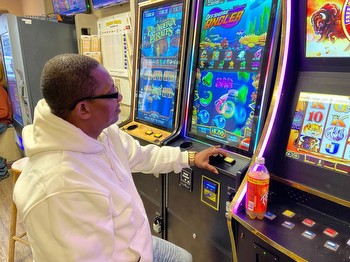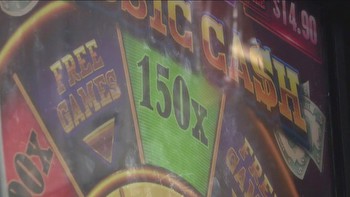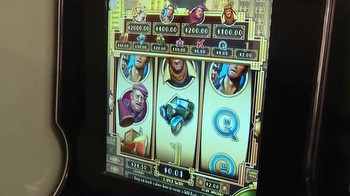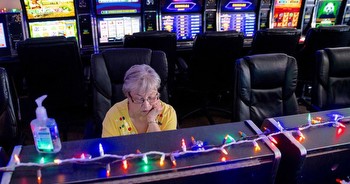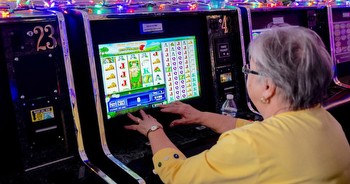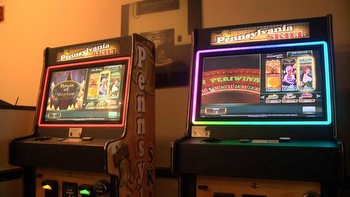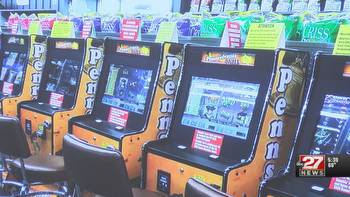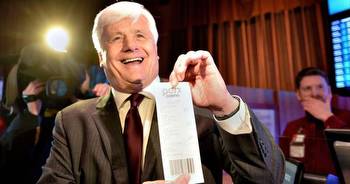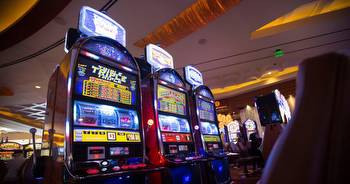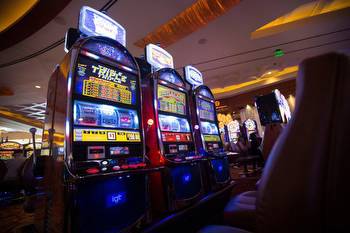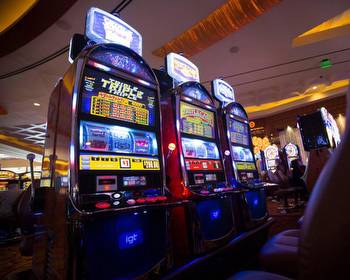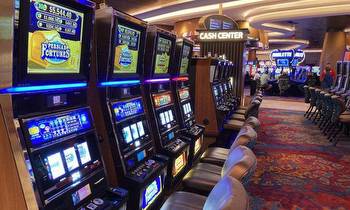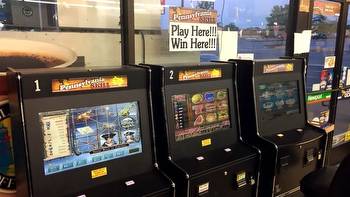Fair fun that ‘helps the little guys,’ or illegal gambling machines?


 he Lycoming Mall sits along Route 220 west of Muncy, surrounded by mostly empty parking spots, an edifice constructed more than four decades ago in farm fields slowly fading into a monument to former commercial glory.
he Lycoming Mall sits along Route 220 west of Muncy, surrounded by mostly empty parking spots, an edifice constructed more than four decades ago in farm fields slowly fading into a monument to former commercial glory.
Many businesses inside this former shopping mecca and the surrounding area outside it have closed their doors in recent years.
But one business has found a home there.
Lou Miele has big plans for the former Gander Mountain building near the Lycoming Mall.
In fact, he’s already well into building a business there.
His Miele Manufacturing employs 140 people involved in putting together gaming amusement machines found in fraternal clubs, stores and other establishments in the area and elsewhere.
He recently led a tour of the spacious building in the midst of expansion.
The games of skill machines have created a steady stream of revenue, he said, not only for his business, but in the way of charitable giving.
“We bought this building two years ago,” Miele said.
Miele briefly summed up the manufacturing process.
“We cut our own wood,” he said. “We assemble our own cabinets.”
Much of the steel used in building the machines comes from Radiant Steel, Williamsport.
He’s quick to note that the business uses local materials as much as possible.
Miele launched the business several years ago and initially fabricated the machines from jukeboxes.
“We built 30,000 machines in 2015,” he said.
These days, the business makes up to 500 machines a week with the software for the devices made by Pace-O-Matic in Georgia.
Miele acknowledged that his machines have been referred to as gambling devices.
In fact, their use by people who play them and hope to come away with money jingling in their pockets has been challenged.
Marc Lovecchio, a former Lycoming County judge and attorney for Miele’s business, noted that two court decisions in Pennsylvania have supported Miele’s case that the machines are games of skill, as their name says.
He also acknowledged that there continue to be arguments against the legality of the games of skill.
“We are offering up legislation to support our case,” Miele said.
He insisted there’s a big difference between games of skill and the illegal gambling devices, with outcomes from his machines much more dependent on skill levels of players.
Other game manufacturers, he noted, push games of skill that have not been approved by a Pennsylvania court.
A machine with “skills” inscribed on it, he added, does not mean it is legal.
Peter Shelly, a Harrisburg public affairs specialist, has led the charge against games of skill.
He claims they are in fact illegal and belong in casinos where they can be regulated and where minors cannot play them.
“Our bottom line is that the Pennsylvania State Police, Office of Attorney General, Pennsylvania Gaming Control Board and half of district attorneys agree that they are illegal,” said Shelly, who works for Parx Casino.
Miele contended that machines distributed by rival companies as games of skill do have predetermined outcomes and are illegal.
But Shelly argues that all such devices are slot machines.
“They are all slot machines,” he said. “You have no idea what the odds are, how they are regulated, or inspected.”
Shelly has other issues with games of skill.
The machines, he said, drain money from the Pennsylvania Lottery which funds senior centers, low-cost prescription drugs, and other senior programs.
In addition, the unregulated games of skills fail to provide the jobs and revenue of casinos and other state-regulated gambling.
“They don’t pay a nickel in gaming taxes,” he said. “They don’t create any jobs, which is one of the main goals of the Pennsylvania Gaming industry.”
Miele said he wants to have his machines taxed and to bring about better regulation in the entire gaming industry — never mind that his business already pays a reported $7.8 million a year in sales taxes.
State Rep. Jeff Wheeland, R-Loyalsock Township, has sponsored legislation that he said would specifically define games of skill and their legality.
“It would distinguish games of skill where you can’t control the odds and those machines that are controlled,” he said. “In skill games, you can’t set the odds.”
Wheeland acknowledged the pushback from opponents of the games of skill machines manufactured by Miele’s company.
The casinos where legal slot machines are found, he noted, simply want a bigger piece of the revenue pie.
“They don’t want to help the small businesses where these (games of skill) are located,” he said. “People in general like skill games. It helps the clubs, the little guys.”
Miele’s wife and business partner, Nicole Miele, points to the many volunteer and other groups Miele Manufacturing supports.
“We decided we need to give back,” she said. “We give about $80,000 a month all over.”
Some of the organizations that have benefited include food banks and emergency responders.
In the meantime, the business is expanding.
Space has been added to the spacious building and more construction is well under way to include offices, a kitchen, a gymnasium and much more.
Miele, for his part, feels he’s supporting the community in the way of charitable giving and providing many jobs in his business to people.








